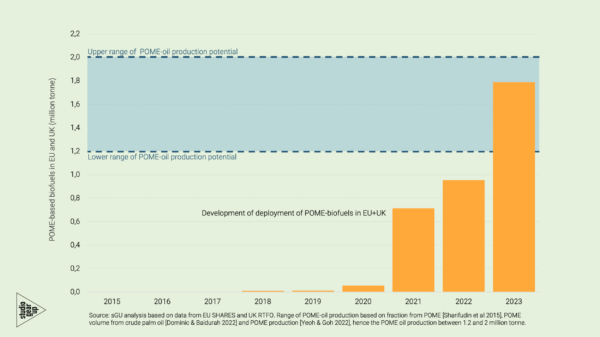Blog by Kyriakos Maniatis, David Chiaramonti, Eric van den Heuvel*)
Post COVID-19 recovery and 2050 climate change targets:
Shift from promotion of renewables to mandated curtailment of fossil fuels in EU policies
COVID-19 has brought unprecedented loss to human life and detriment to the global economy. The use of fossil fuels decreased significantly during spring 2020 but as of these days GHG emissions will surpass pre-COVID levels. Under normal times our community and that of decisionmakers at all levels are talking about disruptive technologies as the best means to bring a step change in fighting climate change and ensuring that the Paris Agreement goals are met: avoiding dangerous climate change by limiting global warming to well below 2°C and pursuing efforts to limit it to 1.5°C are met by 2050.
In a recent article published at MDPI Energies, we have looked very carefully to the effects of COVID-19 on the global energy scene and the use of coal, oil and natural gas. At the same time we were surprised to find that global civil society, from students to NGOs, city councils and citizens, has undertaken strong actions towards limiting the use of fossil fuels in their countries.
The European oil majors have all announced policies towards net zero by 2050, taking the lead over their North American ones which are also following up but at a much slower pace. For the first time, the oil majors are investing heavily in renewables.
The recovery out of the pandemic has been seen as unique opportunity to move to a greener energy system. However, for this to be accomplished huge investments are needed in CCUS, renewable hydrogen and other technologies. HSBC estimated that the total investment required to achieve the 2050 Paris Accord climate target will reach $100 trillion over the next 30 years. The Recovery Plan of the European Union addresses practically all the above-raised issues and this has been analysed for the transport sector in another article by Chiaramonti and Maniatis, where driving the post-pandemic Green Transition is discussed as a key element to inject economic resources in EU companies while generating socio-economic benefits.
In these complex situations and times, we are of the opinion that disruptive technologies will not suffice to bring the changes we need ensuring that the Paris Agreement goals will be met. We have concluded that only disruptive policiescan achieve such a complex and multifaceted goal. Looking in particular to the European Union, we have come to the conclusion that the Paris 2050 targets can be achieved by a three pronged approach:
- Terminate coal use by 2030,
- Extend the RED II directive to 2035, and
- Legislate the continuous and constant curtailment of fossils in the EU as of 2025.
Antonio Guterres said on 2 March 2021 that all planned coal projects around the world must be cancelled to end the “deadly addiction” to the most polluting fossil fuel. On 3 February 2021, Total CEO Patrick Pouyanne pointed out that new policies are needed by legislators without which it would be very difficult to achieve the Paris 2050 Agreement targets.
You may not all agree with the above proposed three-pronged approach but we are of the opinion that a debate needs to take place among all stakeholders on what the approach should be for the EU to have any chance of achieving the Paris 2050 targets.
*) Kyriakos Maniatis is independent consultant who was formerly the Principal Administrator in the Directorate General for Energy of the European Commission. Professor David Chiaramonti serves in the “Galileo Ferraris” Energy Department, Polytechnic of Turin in Italy. Eric van den Heuvel is a partner and founder of studio Gear Up in the Netherlands.



